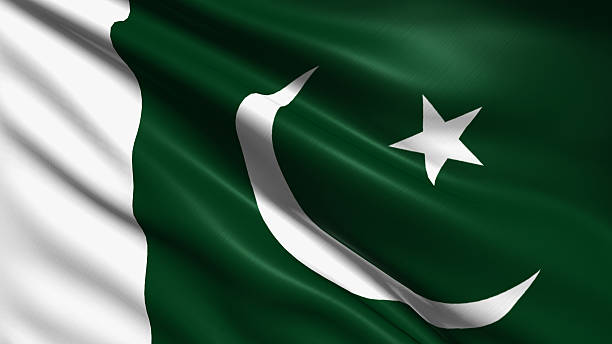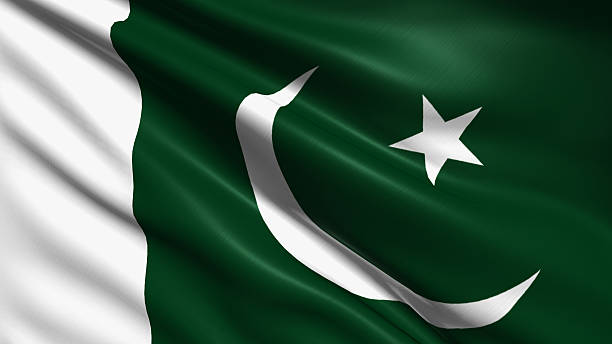Pakistan: the Birth of New Ideals
Farhan Shah, Muslim philosopher,
Islam-consultant to the Center for Process Studies, California,
Doctoral fellow at the University of Oslo
The spiritual father of Pakistan, Muhammad Iqbal (1877-1938), once asserted that the working power of an idea depends on the force of the personality in which it embodies itself. There have been some political powerhouses (Pakistan Muslim League and Pakistan Peoples Party) in Pakistan which vowed to use their higher positions in the service of the objectives of Islam as a social polity. However, none of these parties was capable of systematically protecting and promoting the social and economic well-being of their citizens through strengthening state institutions. As experience has shown, these parties were more occupied with securing their own interests at the expense of the population, reducing thousands to servitude by pandering to the avarice and greed of their respective political parties. In the present pathological climate,
Imran Khan, the leader of his party Pakistan Tehreek-e-Insaf (Pakistan Movement for Justice Party), recently won the elections in Pakistan. He appears to be the only non-nepotistic and sincere political force working in the direction of a human organization based on the higher principles of Islam as manifested by the Prophet Muhammad in Medina in the Arabian Peninsula. Such principles include the equitable distribution of wealth, equality of opportunity, and civic responsibility for those citizens who are unable to avail themselves of the minimal provisions for a dignified living – regardless of their religion, culture, gender and mental and physical capacities.
Zest for Life
Where there is no vision or ideals of excellence to be attained, zest for life is lost. When the future of Pakistan appeared bleak, Imran Khan furnished grounds for hope for the realisation of cherished ideals of human dignity, social justice and equality. Khan`s strenuous efforts to challenge the unhealthy elitist political status quo and the rampant corruption and oppression among the ruling elites have created much needed space for structural improvements in the body-politic of Pakistan such as health services, anti-poverty programs, public provision of basic education and housing and the betterment of the system of taxation. He has on several occasions, lately during his speech after winning the election, stated categorically that the quality of human societies does not lie in questions of affluence, appearance, and marketable achievement, but in the manner in which it treats the weakest: the marginalised, those who are left alone, orphans, immigrants, the otherwise disregarded. Khan`s vision echoes a humanistic poem of Muhammad Iqbal: “Humanity binds humans together in fraternity; so keep your feet fixed on the path of amity. The human of love, who sees others with God`s eye, loves heathen and believer equally. Give both of them a warm place in your heart; Woe to the heart, if heart from heart should part.”
Novel opportunities of Self-Realisation
That which has never been actualised may yet be. What has been until now does not exhaust the realm of (novel) possibilities and the lures for their concrescences. In these nervous times, we have opportunities to break out of our self-imposed religious and political mental prisons, to see all things from different perspectives, to imagine what has never yet been dreamed of, and to work together as moral and responsible citizens of the state to ameliorate governmental structures, to reform our public institutions and religious centres in order to protect the dignity and basic rights of the downtrodden so that they may have equal opportunities as the upper stratum in self-realisation.
From Fatalism to Open Future
The British philosopher Alfred North Whitehead asserts that “…in the long run your character and your conduct of life depend upon your intimate convictions.” And since our concept of life and basic emotional-attitudinal-behavioural stance depends on our deep-rooted convictions, lasting material and structural changes require mental re-making, a fundamental change of attitude. In Muslim countries in general, and in Pakistan particular, one of the “intimate convictions” most detrimental to any societal reformation is the theological-politico notion of fatalism (taqdeer). In short, fatalism means that an omnipotent (all-powerful) God has determined humanity`s future in advance. If everything in humanity`s sphere is settled and immutable, prewritten by an omnipotent God, then there is no need or desire to alter our private and/or collective condition, i.e., the “natural order” should not be rearranged or disturbed. Hence the maxim “we were allotted no more than these few scraps from destiny’s table.” The effects of the belief in fatalism, along with other misguided and misrepresented beliefs, has created in many a Muslim an attitude of "soul apathy" and a fatalistic submission to unjust political and religious authorities. This notion tends to generate a slavish and defeatist mentality, reducing the human subject as dynamic and capable of free conscious behaviour to an incapacitated, helpless creature. It is by shutting down our intellectual capacities, our urge to be free and improve our lot, that asymmetrical structures and mechanisms are bolstered, benefiting a few hands at the upper strata of societies. Counter-narratives, however, are being developed in Muslim countries that challenge mainstream theological understandings related to the nature of God, the relationship between human and divine power, the interplay of science and faith, the importance of theological humanism, the significance of process in the legal structure of Islam, and the challenges of ethical decision-making. Nevertheless, it is disturbing that religious education in madrassas and mosques, financed especially by Saudi Arabia, continues to instil fatalistic modes of thinking, and furnish little support for our sense of self-determination and consequent moral responsibility. The youth are especially likely to excuse themselves for their resignation and failures rather than strive for private and societal advancement. Here, Muhammad Iqbal`s anti-fatalistic philosophy is important to create a new Muslim consciousness.
Muhammad Iqbal`s Process Philosophy
Muhammad Iqbal, profoundly influenced by the Qur`anic scripture, presents a transformative and dynamic vision of reality, one which is responsive to the challenges of postmodern realities. His work seeks to transform people`s lives by furnishing a vision of God, reality and human beings that enables Muslim peoples to find inspiration, hope and meaning in the face of difficult circumstances. Moreover, Iqbal`s philosophy presents an open-ended vision of human existence and the universe in contrast to conventional fatalistic-oriented theologies. His philosophy avers that God does not control everything. Rather than being bad news, Iqbal believed that the reality of divine self-limitation opens up needed space for broader human responsibility, freedom and creativity, which is grounded on our common, pre-reflective experience of responsible freedom.
In brief, according to Iqbal, the future does not come to us as an already settled event. God has not written a script in advance. We help create the future, moment by moment, by the decisions we make, individually and corporately. Sometimes we make dreadful decisions at great cost to others, ourselves, and the planet at large. And sometimes we make wonderful decisions, adding beauty and love that did not exist beforehand. We can be agents of terror or peace; either way, we are free because, in Iqbal words, “God cannot choose for me when more than one course of action is open to me.” Our noble calling is not simply to be free. It is to use our conscious behaviour and human capacities to volitionally co-operate with other human agents in order to create futures that are good for people, other creatures, and the earth: to become, as the Qur’an puts it, God`s vicegerents on a small but beautiful planet. In that way, we are able, in the words of Iqbal, to “consciously participate in the creative life of his [our] Maker”. This is what it means to be a human being and to be a Muslim, according to Iqbal. It is to willingly accept and live from the higher calling to add goodness, justice and beauty to the world. This author, along with Muslim philosophers and laypersons who are deeply influenced by Iqbal, are deeply grateful to him for providing us a Quranically inspired philosophy that gives hope and inspires Muslims to be creative agents rather than passive spectators in shaping their own future and the future of the planet earth.
The Doing of Duties and Spiritual Democracy
The journey toward governmental, social and moral advancement of Pakistan is, to be sure, long and arduous, requiring great intellectual, emotional and moral stamina. However, equipped with realistic hope, definite goals, and a deep sense of human freedom and responsibility for the future, the people of Pakistan are capable of developing the nation in a constructive direction which will strengthen democratic principles, such as restricting the powers of the rulers and rationalising their policies, protecting the rights of the citizens and our environment, and attaining the public good. This necessary development grows out of the recognition of the existential fact that the cure to pathological conditions lies in our own hands, that the future is an open possibility, and that how the future will be shaped depends to some degree upon what human agents do in their individual and institutional capacities. Furthermore, it is only with a profound sense of duty for the common good of all life that practical change will occur. As Iqbal would have liked to remind us: “True political life begins not with the claiming of rights, but with the doing of duties”. And, Iqbal would also teach us that what God seeks ever most deeply, is that we become caretakers of one another and the “dwelling place”, all the while respecting the dignity of each and all, thus reflecting God’s own love, care and inclusion on the temporal scene. Such an active mode of caretaking is what Muhammad Iqbal means by his vision of spiritual democracy. In the same spirit, let us redefine our collective calling in order to become true spiritual democrats, which is the “ultimate aim of Islam”.

